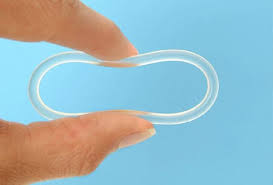Researchers say monthly vaginal ring and daily oral tablet, both containing anti-HIV drugs, are safe and acceptable in adolescent girls.
The News Agency of Nigeria (NAN) reports that the results of the study were presented on Wednesday at the 9th IAS Conference on HIV Science in Paris, France.
The study reveals that the use of dapivirine vaginal ring by adolescent girls, most or all of the time, reduces the risk of HIV infection in women by no less than 56 per cent.
Dr Sharon Hillier, the Principal Investigator, NIH-funded Microbicide Trials Network (MTN), said the researchers were encouraged by the result of the dapivirine ring in 15 to 17 year-old girls.
“The study has demonstrated that the ring is safe in US teens, and now we need data on the safety and acceptability of the ring in African adolescent girls.
“The REACH study, scheduled to launch later this year, will generate this data,’’ she said.
Hillier stated that an earlier NIAID-funded study called ASPIRE, which enrolled women ages from 18 to 45, tested a ring that continuously releases the experimental anti-HIV drug dapivirine in the vagina over one month.
“The results, reported in 2016, showed 27 per cent protection overall but no protection in women ages 18 to 21, likely due to low adherence.
“A subsequent exploratory analysis of ASPIRE study data found that, using the ring most or all of the time reduces the risk of HIV infection in women by at least 56 per cent.’’
Hillier said that a phase 2a clinical trial, called MTN-023/IPM 030, was conducted in the United States to examine the safety and acceptability of the dapivirine ring among sexually active girls from 15 to 17 years old.
“ Adolescent girls and young women, ages 15 to 24, are at particularly high risk for HIV infection. They accounted for 20 per cent of new HIV infections among adults globally in 2015.
“Ninety-six girls enrolled at six U.S. sites were assigned at random to receive either the dapivirine ring or a placebo ring in a 3-to-1 ratio.
“Neither the participants nor the investigators knew who had received which ring until the end of the trial. Participants were asked to insert a new ring each month for 6 months.
“Researchers monitored participants’ health and gauged adherence by measuring the amount of dapivirine in blood samples and used rings.’’
Hillier further stated that the study revealed that the dapivirine ring was safe and acceptable to participants.
‘’Adherence to the ring was high: drug levels in 87 per cent of blood samples and 95 per cent of used rings met pre-specified adherence criteria.
“Overall, participants said they liked the ring at 93 per cent of study visits but were concerned about keeping the ring clean and fear of it being felt by primary sexual partner during sex.’’
Hillier said that the MTN investigators would in the study tagged `REACH’ assess how study participants used the monthly ring and daily PrEP and their preferences for either or both approaches.
NAN reports that Hillier is a Professor and Director of reproductive infectious disease research, Department of Obstetrics, Gynaecology and Reproductive Sciences, University of Pittsburgh School of Medicine.
Similarly, Dr Anthony Fauci has said that adherence to the ring was high, adding that adherence to the tablet was moderate and diminished substantially when study visits became less frequent.
Fauci, a Director, National Institute of Allergy and Infectious Diseases (NIAID), said that it was the first clinical trial of the oral tablet as pre-exposure prophylaxis (PrEP), specifically for adolescents girls.
He said that the findings paved way for larger trials of the vaginal ring and oral PrEP in this vulnerable age group.
“Adolescents and young people represent a growing share of people living with HIV worldwide.
“Science has demonstrated that the HIV prevention needs of adolescents may be different from those of adults, which is why these new study findings are so important,’’ he said. (NAN)





